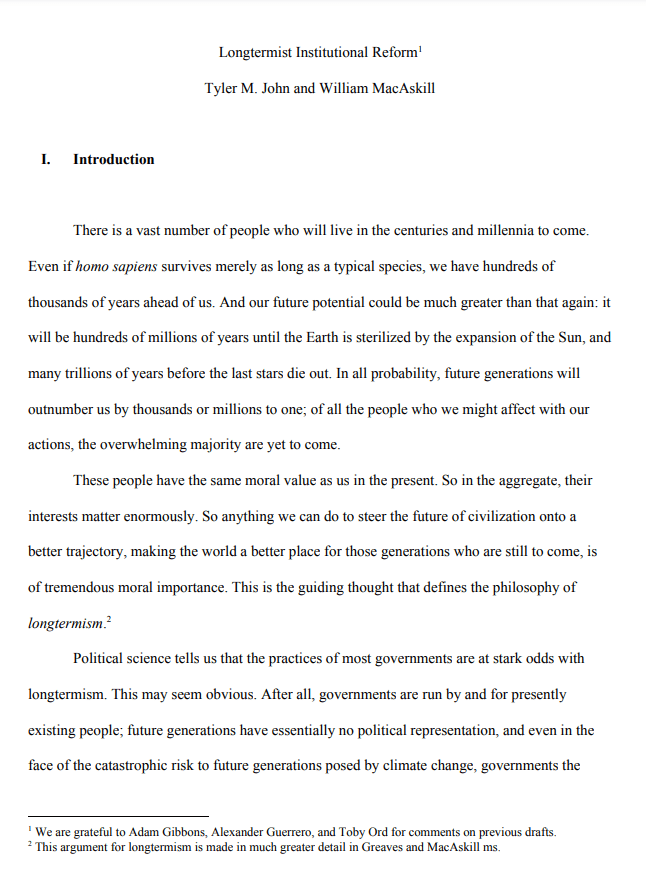Longtermist institutional reform
Tyler M. John (Rutgers University) and William MacAskill (Global Priorities Institute, Oxford University)
GPI Working Paper No. 14-2020, published in The Long View: Essays on Policy, Philanthropy, and the Long-Term Future
There is a vast number of people who will live in the centuries and millennia to come. Even if homo sapiens survives merely as long as a typical species, we have hundreds of thousands of years ahead of us. And our future potential could be much greater than that again: it will be hundreds of millions of years until the Earth is sterilized by the expansion of the Sun, and many trillions of years before the last stars die out. In all probability, future generations will outnumber us by thousands or millions to one; of all the people who we might affect with our actions, the overwhelming majority are yet to come. [...]
Other working papers
Can an evidentialist be risk-averse? – Hayden Wilkinson (Global Priorities Institute, University of Oxford)
Two key questions of normative decision theory are: 1) whether the probabilities relevant to decision theory are evidential or causal; and 2) whether agents should be risk-neutral, and so maximise the expected value of the outcome, or instead risk-averse (or otherwise sensitive to risk). These questions are typically thought to be independent – that our answer to one bears little on our answer to the other. …
Misjudgment Exacerbates Collective Action Problems – Joshua Lewis (New York University) et al.
In collective action problems, suboptimal collective outcomes arise from each individual optimizing their own wellbeing. Past work assumes individuals do this because they care more about themselves than others. Yet, other factors could also contribute. We examine the role of empirical beliefs. Our results suggest people underestimate individual impact on collective problems. When collective action seems worthwhile, individual action often does not, even if the expected ratio of costs to benefits is the same. …
Consequentialism, Cluelessness, Clumsiness, and Counterfactuals – Alan Hájek (Australian National University)
According to a standard statement of objective consequentialism, a morally right action is one that has the best consequences. More generally, given a choice between two actions, one is morally better than the other just in case the consequences of the former action are better than those of the latter. (These are not just the immediate consequences of the actions, but the long-term consequences, perhaps until the end of history.) This account glides easily off the tongue—so easily that…

